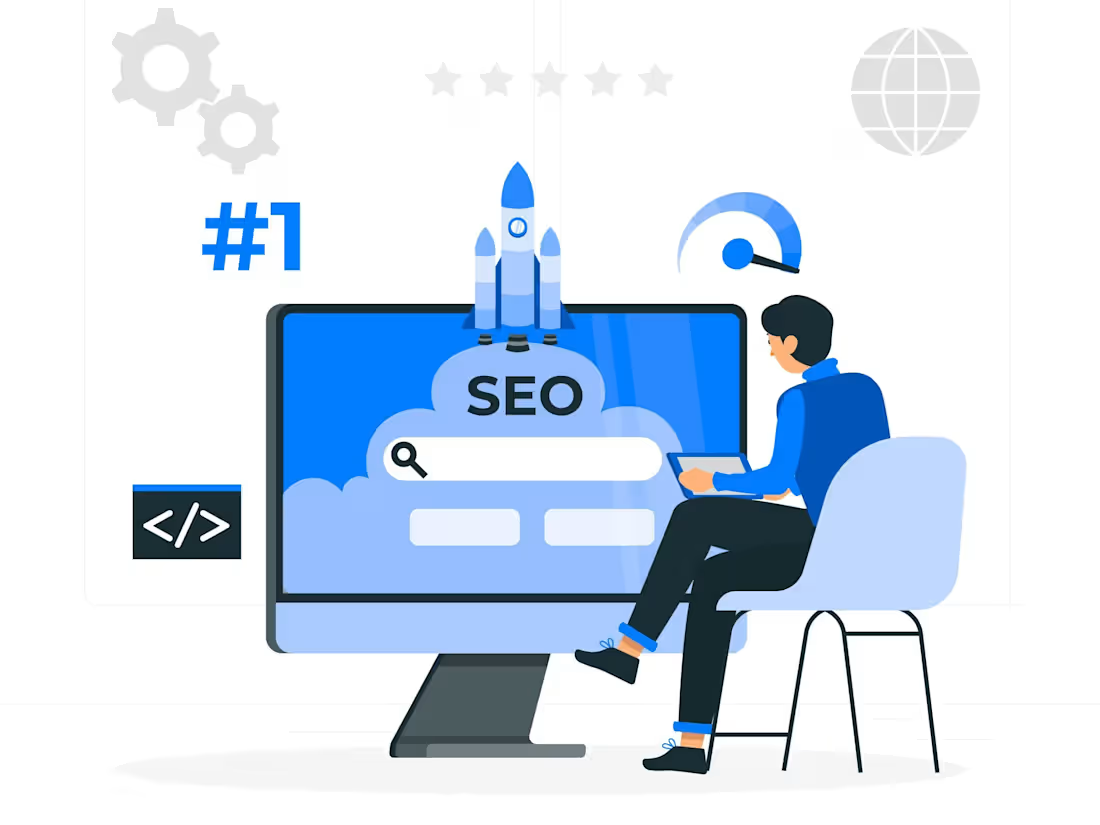
SEO ManagerGlorioso Jr Trazo
I can develop and implement strategies to improve a website's visibility and compete on search engines like Google. In addition, I can collaborate with web developers, content creators, and graphic designers just to enhance website visibility and generate organic traffic.
FAQs
An SEO manager is responsible for developing and implementing strategies to improve a website's visibility and ranking in search engine results pages (SERPs). This includes keyword research, on-page optimization, technical SEO, content strategy, and performance analysis.
Staying updated with the latest SEO trends is crucial for an SEO manager. Follow industry blogs, subscribe to newsletters, attend webinars and conferences, participate in online communities, and follow reputable SEO experts on social media platforms. Additionally, regularly review Google's official updates and documentation.
The timeline for seeing results from SEO efforts can vary depending on factors such as the competitiveness of the industry, the quality of the website's content and optimization, and the effectiveness of the SEO strategies implemented. Generally, it can take several months to see significant improvements in search engine rankings and organic traffic.
SEO success can be measured using various key performance indicators (KPIs) such as organic traffic, keyword rankings, click-through rates (CTRs), conversion rates, and return on investment (ROI). Utilize tools like Google Analytics, Google Search Console, and SEO platforms to track and analyze these metrics regularly.
The most important ranking factors for SEO include high-quality and relevant content, backlinks from authoritative websites, website speed and mobile-friendliness, user experience (UX), technical optimization (such as crawlability and indexability), and domain authority.
To optimize a website for local SEO, focus on creating and optimizing Google My Business listings, ensuring consistency of business information across online directories, obtaining local citations, generating positive reviews, optimizing website content with local keywords, and implementing structured data markup.
SEO for e-commerce websites requires a comprehensive approach that includes optimizing product pages with relevant keywords, creating unique product descriptions and titles, optimizing images and videos, improving site speed and usability, implementing schema markup for product information, and earning quality backlinks.
Glorioso Jr's other services
Starting at$800
Duration4 weeks
Tags
Ahrefs
Google Ads
SEMrush
WordPress
Yoast SEO
SEO Specialist
SEO Content Manager
SEO Writer
Service provided by

Glorioso Jr Trazo Philippines

SEO ManagerGlorioso Jr Trazo
Starting at$800
Duration4 weeks
Tags
Ahrefs
Google Ads
SEMrush
WordPress
Yoast SEO
SEO Specialist
SEO Content Manager
SEO Writer
I can develop and implement strategies to improve a website's visibility and compete on search engines like Google. In addition, I can collaborate with web developers, content creators, and graphic designers just to enhance website visibility and generate organic traffic.
FAQs
An SEO manager is responsible for developing and implementing strategies to improve a website's visibility and ranking in search engine results pages (SERPs). This includes keyword research, on-page optimization, technical SEO, content strategy, and performance analysis.
Staying updated with the latest SEO trends is crucial for an SEO manager. Follow industry blogs, subscribe to newsletters, attend webinars and conferences, participate in online communities, and follow reputable SEO experts on social media platforms. Additionally, regularly review Google's official updates and documentation.
The timeline for seeing results from SEO efforts can vary depending on factors such as the competitiveness of the industry, the quality of the website's content and optimization, and the effectiveness of the SEO strategies implemented. Generally, it can take several months to see significant improvements in search engine rankings and organic traffic.
SEO success can be measured using various key performance indicators (KPIs) such as organic traffic, keyword rankings, click-through rates (CTRs), conversion rates, and return on investment (ROI). Utilize tools like Google Analytics, Google Search Console, and SEO platforms to track and analyze these metrics regularly.
The most important ranking factors for SEO include high-quality and relevant content, backlinks from authoritative websites, website speed and mobile-friendliness, user experience (UX), technical optimization (such as crawlability and indexability), and domain authority.
To optimize a website for local SEO, focus on creating and optimizing Google My Business listings, ensuring consistency of business information across online directories, obtaining local citations, generating positive reviews, optimizing website content with local keywords, and implementing structured data markup.
SEO for e-commerce websites requires a comprehensive approach that includes optimizing product pages with relevant keywords, creating unique product descriptions and titles, optimizing images and videos, improving site speed and usability, implementing schema markup for product information, and earning quality backlinks.
Glorioso Jr's other services
$800







